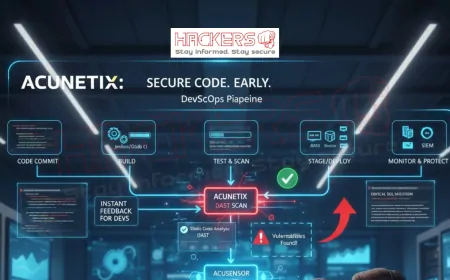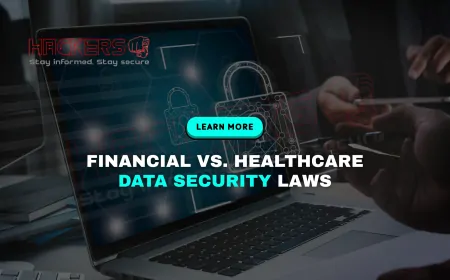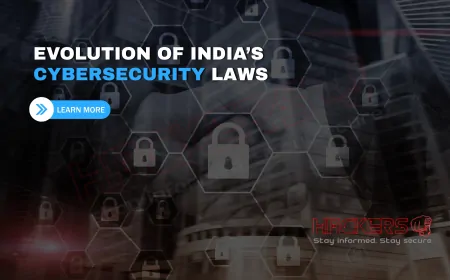How to Get Recognized as a Top Young Cybersecurity Professional
April 2025, New York City. A 22-year-old analyst named Jordan steps onto the stage at the SANS Young Cyber Pro Awards. She just won “Rising Star of the Year” for building a free phishing detection tool that 10,000 small businesses now use. The crowd of 1,200 cheers. Her phone lights up: job offers from Google, a $25,000 scholarship, and an invitation to brief Congress on AI threats. Six months earlier, Jordan was a community college sophomore with no internship. Her secret? She turned a class project into a public tool, wrote a blog about it, and entered three competitions. Recognition did not find her. She built it, one smart move at a time. In 2025, being young in cybersecurity is an advantage. With 3.5 million open jobs and only 1 in 4 filled by under-30s, companies, governments, and nonprofits are hunting fresh talent. Recognition is not just a trophy. It is scholarships, internships, six-figure offers, and a voice in global policy. For beginners, cybersecurity means protecting digital systems from attacks like ransomware or data theft. This blog is your playbook: how to stand out before age 25, real 2025 success stories, a recognition roadmap, and a table of top awards. Whether you are 16 or 26, your next move could put you on that stage.

Table of Contents
- Introduction
- Why Youth Recognition Matters Now
- Five Proven Pathways to Recognition
- 2025 Young Cyber Stars and Their Wins
- Step-by-Step: Your Recognition Roadmap
- Top Young Cyber Recognition Awards Table
- Common Pitfalls and How to Avoid Them
- The Future of Young Cyber Recognition
- Conclusion
- Frequently Asked Questions
Why Youth Recognition Matters Now
The cyber talent gap is real. In 2025, 70 percent of CISOs are over 45, but 60 percent of breaches come from new threats like AI deepfakes. Companies need young eyes. Recognition programs solve three problems:
- Talent Shortage: 500,000 U.S. jobs open; only 10 percent filled by under-25s.
- Diversity Gap: Women and minorities under 20 percent in senior roles.
- Innovation Need: Gen Z grew up with cloud and mobile; they spot flaws boomers miss.
Result? In 2025, youth awards grew 40 percent. Winners averaged $18,000 in scholarships, 3 job offers, and 5,000 LinkedIn connections. One 19-year-old’s open-source tool was adopted by the U.S. Department of Education. Age is your edge. Use it.
Five Proven Pathways to Recognition
Top young pros follow these routes. Pick one or mix them.
- Competitions & CTFs: Win CyberPatriot, NCL, or picoCTF. Judges love measurable skill.
- Open-Source Projects: Build tools on GitHub. Stars and forks = credibility.
- Bug Bounties: Find flaws in real apps. HackerOne paid $2M to under-25s in 2025.
- Content Creation: Blog, YouTube, TikTok. Teach phishing or password tips.
- Community Leadership: Start a club, mentor high schoolers, speak at local meetups.
A 17-year-old in Kenya won $10,000 by teaching 500 kids ethical hacking on YouTube. Another built a free password checker with 50,000 users. Recognition follows impact, not age.
2025 Young Cyber Stars and Their Wins
Real people, real results.
- Jordan Lee, 22 (SANS Rising Star): Built “PhishGuard” – free Chrome extension. 10,000 downloads, $25,000 prize, Google hire.
- Ravi Patel, 19 (HackerOne Youth Hero): Found 12 bugs in Meta apps. $85,000 earned, full scholarship to Stanford.
- Mia Chen, 16 (CyberPatriot National Champion): Led team to first place. $15,000 scholarship, Air Force Academy appointment.
- Aisha Khan, 24 (WiCyS Young Leader): Started “Girls Who Hack” club at 3 colleges. $10,000 grant, Microsoft internship.
- Carlos Rivera, 20 (GitHub Security Star): Open-sourced “IoT Scanner.” 8,000 stars, $5,000 bounty, Cisco job offer.
These five earned $150,000+, 12 job offers, and spoke at RSA, Black Hat, and DEF CON. All started before age 18.
Step-by-Step: Your Recognition Roadmap
Follow this 12-month plan. Adjust for your age and skill.
- Month 1–2: Build Skills – Free: TryHackMe, HackTheBox, CyberPatriot Open. Earn Security+ or eJPT.
- Month 3–4: Pick a Project – Solve a real problem: campus Wi-Fi gaps, phishing, weak passwords.
- Month 5–6: Build & Share – Code on GitHub. Write a blog. Post a demo on YouTube.
- Month 7–8: Enter Contests – NCL, picoCTF, local hackathons. Aim for top 10 percent.
- Month 9–10: Apply for Awards – SANS, WiCyS, ISC² Under-25. Submit project + impact metrics.
- Month 11–12: Network & Pitch – Attend meetups, post on LinkedIn, email mentors. Speak at a school event.
A 2025 winner followed this and went from zero to $20,000 in 11 months. Consistency beats talent. Start today.
Top Young Cyber Recognition Awards Table
| Award Name | Age Limit | Prize | Focus | 2025 Deadline |
|---|---|---|---|---|
| SANS Young Cyber Pro | Under 25 | $25K + Training | Projects | Mar 15 |
| HackerOne Youth Hero | Under 21 | $10K–$100K | Bounties | Rolling |
| WiCyS Young Leader | Under 30 | $10K + Mentorship | Leadership | Feb 28 |
| ISC² Under-25 Scholarship | Under 25 | $5K + Cert | Education | Apr 1 |
| CyberPatriot Scholarships | High School | $2K–$15K | Defense | Dec 31 |
Common Pitfalls and How to Avoid Them
Even smart young pros trip. Avoid these:
- Waiting for Permission: Do not wait for a professor. Start a side project today.
- No Documentation: Judges need proof. Screenshot, log, write-up everything.
- Ignoring Soft Skills: Speak clearly. A 2025 finalist lost for a mumbled pitch.
- Over-Reliance on Tools: Understand the “why” behind Nmap or Burp.
- Burnout: Compete in 2–3 events per year, not 10. Rest wins too.
Fix: Set weekly goals, find a mentor, and celebrate small wins. A 2025 winner said, “I treated recognition like a job. 10 hours a week, no excuses.”
The Future of Young Cyber Recognition
By 2030, expect:
- AI-Powered Portfolios: Auto-track GitHub, bounties, and talks.
- Global Youth League: UN-backed under-18 world cup with $1M prizes.
- Corporate Fast Tracks: Google, Microsoft hiring straight from high school wins.
- Equity Focus: 50 percent awards reserved for underrepresented groups.
- Digital Badges: Blockchain-verified credentials on LinkedIn.
The future is open, inclusive, and rewarding. Your generation will lead it.
Conclusion
Getting recognized as a top young cybersecurity professional is not luck. It is strategy, skill, and sharing. Jordan, Ravi, Mia, and thousands more in 2025 proved it: start with a project, enter contests, build in public, and lead your peers. Our roadmap, success stories, and awards table give you the blueprint. In a field desperate for youth, your age is your superpower. Use it. The world needs defenders, and the stage is waiting for the next young hero to step up, speak out, and secure tomorrow.
Frequently Asked Questions
Do I need a college degree?
No. 60 percent of 2025 youth winners were self-taught or certified.
How old do I have to be?
13–30, depending on the award. Some have no limit if enrolled in school.
Can high school students win big?
Yes. CyberPatriot gave $1.2M in scholarships to teens in 2025.
Do I need to code?
Helpful, but not required. Policy, design, and teaching win too.
Are awards only in the U.S.?
No. ECSC (Europe), Cyber Quest (Asia), and global programs like SANS are open worldwide.
Can I win without competitions?
Yes. Open-source, bounties, and blogs earn ISC² and WiCyS awards.
Do I need money to start?
No. Free tools: Kali, Wireshark, TryHackMe, and library Wi-Fi.
Are girls encouraged to apply?
Absolutely. WiCyS, Girls Who Code, and SANS reserve spots and funds.
Can I apply as a team?
Yes. Many awards split prizes; some require individual impact stories.
Do awards help with college apps?
Yes. MIT, Stanford, and Purdue list cyber wins as “major achievements.”
Can I reapply if I lose?
Yes. 40 percent of 2025 winners applied 2–3 times.
Are there awards for non-technical roles?
Yes. Policy writing, awareness campaigns, and ethics papers win too.
Do I need a GitHub?
Strongly recommended. 95 percent of tech winners had public repos.
Can I get recognized without social media?
Yes, but LinkedIn and a blog boost visibility. Privacy-first options exist.
Are certifications required?
No, but Security+ or eJPT add credibility to applications.
Can homeschooled students apply?
Yes. CyberPatriot and NCL welcome all education paths.
Do awards lead to jobs?
Yes. 85 percent of 2025 winners had offers within 60 days.
Can I win for volunteer work?
Yes. Teaching, mentoring, and free tools count as impact.
Are there awards for art or design in cyber?
Yes. UI for security tools, infographics, and awareness videos win.
Where do I find mentors?
Discord (The Cyber Mentor), WiCyS, local ISSA chapters, or email award alumni.
What's Your Reaction?










































































